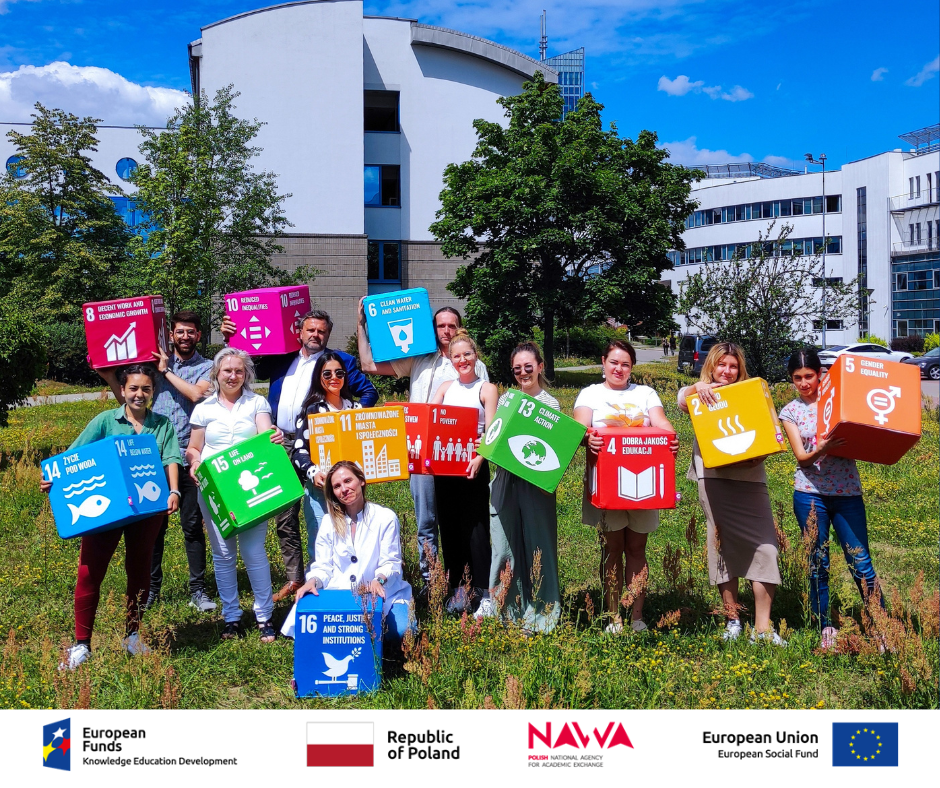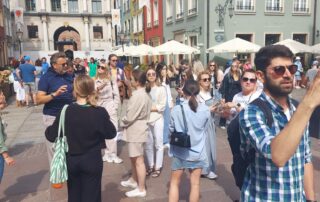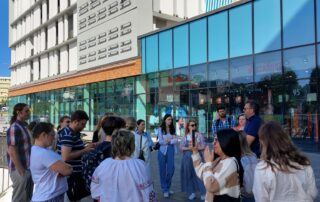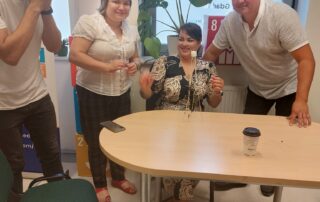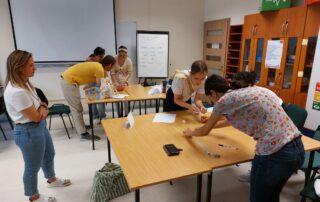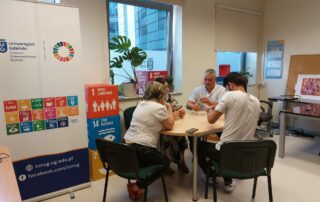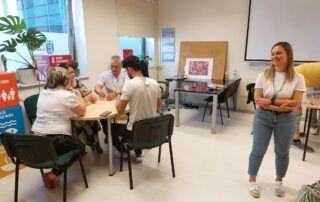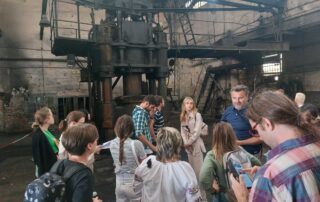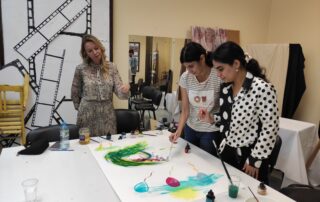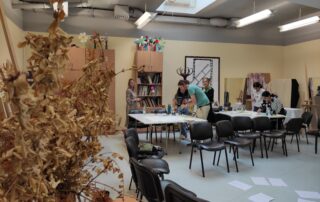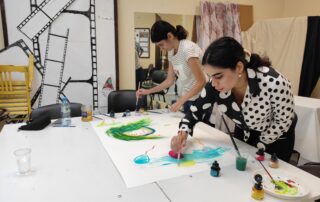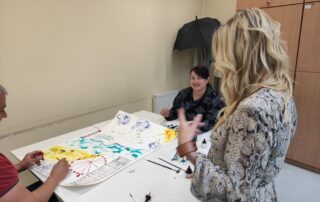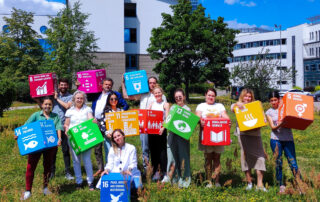Students from Iceland, France, Germany, Ukraine and Kazakhstan came to Gdansk for the TOWNSHIP summer school organised by the Centre for Sustainable Development together with the Institute of Socio-Economic Geography and Spatial Management at the University of Gdansk. For a whole week they took part in intensive workshops and field classes on urban design and sustainable urban management.
The project “TOWNSHIP – towards aesthetically sustainable and shared cities: intensive international education programmes”, headed by Grażyna Chaberek, PhD (Faculty of Social Sciences UG), was funded by the SPINAKER Programme – Intensive International Education Programmes of the National Agency for Academic Exchange. The project has already organised a winter school (Sustainable urban studies – towards inclusive urbanity and society), a MOOC course (Tools towards sustainable urbanity) and a summer school “Sustainable urban studies – towards better urban management”. Both the winter school and the summer school were attended by 12 students and doctoral students from foreign universities.
The classes were divided into two blocks. During the first week (3-7 July 2023), the workshop was held stationary at the Centre for Sustainable Development. Then, for five days (10-14 July 2023), students connected for online classes.
“The Township summer school is another amazing meeting with students from many countries,” says Grażyna Chaberek, PhD. “It has been a wonderful international experience for both the staff of our Faculty of Social Sciences and the participants. I have received many positive comments and even admiration and thanks from the participants who were able to take part in this project. The international students assured me that they will be ambassadors of the project at their universities and will certainly recommend taking part in our courses if we organise further editions.”
During the on-site sessions, students participated in painting dialogues, field activities, learned to identify urban and environmental risks and challenges, and prepared to work on a credit project. During the second week, in an online session, participants deepened their knowledge on urban planning, urban mobility, urban anthropology or managing the urban energy transition. On the last day of the project, credit presentations of the projects took place.
“Everything went according to schedule, lecturers and organizers were always interested in learning, prepared, friendly and open to our questions. I also really liked that the program was organized in such a way that they combined interactive, lectures and trips around the city. Thanks to this, it was a highly topical and interesting program,” says Indira, a student from the University of Rome Tor Vergata in Kazakhstan.
Yoursa, a student from France’s Université du Côte d’Azur, adds that during the summer school she encountered great kindness and professionalism from both the instructors and the other course participants. She was also very impressed by the city of Gdansk.
“Gdańsk is an amazing city, it is a city where I would love to live! Nature is present and so inspiring, insects, citizen people are aware of it, and they protect that. The 2 days trip were very instructive, it was perfect. I was very impressed about the forest closed to where I lived here. I learned many geographic and historical interesting information about Gdańsk, Poland and the rest of the world. I would say it gave me more hope to act in a more sustainable way and have a more positive impact, especially in design projects and in my personal life. Thank you for this amazing experience!” comments Yoursa.
Grażyna Chaberek, PhD, confirms the positive experience.
“Students were very interested in the topics and engaged in the activities The group appeared to be very open to interaction during the activities. The students asked a lot of questions and were eager to discuss. The lecturers also declare their satisfaction with the opportunity to work with foreign students and share their positive impressions. Improving the competences of our faculty’s lecturers in terms of communication and working with foreign students was one of the main objectives of the project,” reports the project manager.
You can read more about the project here:
TOWNSHIP winter school report:


